Chronicles of the Turkish-language newspaper Afrika are stacked up on a stool, behind which countless books and slightly yellowed copies of the newspaper lie on a large desk. Afrika is a small newspaper with a circulation of 1,500 copies. The person behind the paper is editor Şener Levent, one of the Turkish Cypriots who is running for a spot in the European Parliament in 2019. In a circle around the chronicles in the middle of his office, on a dark tile floor, are various kinds of chairs with colourful cushions that remind you of a flea market. Only the snow-white iPad box on the pile of newspapers seems out of place.
A white flag, upon which a copper-coloured island and two olive branches are depicted, is hanging from a shelf: the flag of the Republic of Cyprus. However, the skyscraper that accommodates Levent’s editorial team is located in the territory of North Nicosia and therefore outside the control of the Republic of Cyprus. An old television is standing on the writing desk: the screen of the angular metal box shows the recording of a security camera in low-quality image and flickering colours. “Who works here must accept the difficulties that we face daily”, Levent says. He is currently undergoing a court case for the publication of a comic strip that mocked the Turkish government. The editorial offices have already been attacked many times in the past.
Besides Turkish, Levent only speaks little English, but is fluent in Russian. Who speaks neither of these languages only understands him when he uses the words “Erdoğan” and “fascist” in a sentence, which he often does. In Cyprus and Turkey alike, he is famous for not mincing his words, to the point of notoriety. “I share all the information that I have, with everyone without exceptions”, he says about his own work. With his candidature for the European Parliament, he wants to make clear that “the madness in Cyprus cannot go on”.
Along the Green Line
Levent is not the only Cypriot candidate who is sparking furore ahead of the European elections, but he is one of them. The recent history of the island is marked by conflicts between the two biggest ethnic groups, the Greek and the Turkish Cypriots, and third parties including the guarantor powers Greece and Turkey, as well as the UK as the former colonial power. The violent disputes of the 1960s and the 1970s and finally the military coup of the Greek junta, as well as the invasion by the Turkish military in 1974, forced the majority of Turkish Cypriots to flee to the north of the island, while Greek Cypriots sought to escape the violence in the south.
Today, the UN buffer zone divides the island and also extends across the historical centre of the capital Nicosia. The local Ledra Palace Checkpoint is one of the places where it’s possible to cross through the buffer zone and the so-called Green Line today. After going to the north from this checkpoint, one can reach Levent’s editorial office by foot. Polling stations for the European elections are to be set up at a similar distance to the south. How many Turkish Cypriots cast their ballot depends not least on the logistical measures that the Republic of Cyprus is taking beforehand.
On 1 May 2004, Cyprus entered the EU just one week after an attempt at a reunification of the island through the Annan Plan, named after the erstwhile UN Secretary General, had failed in a referendum. As such, EU law is suspended in the north of the island. Internationally, the declared Turkish Republic of Northern Cyprus is only recognised as an independent state by Turkey. Şener Levent, on the other hand, belongs to the sharp critics who call its existence “continuing occupation” of Cyprus by the Turkish military.
The elections as a logistical challenge
The Turkish Cypriots who live in the north of the island have a right to vote in the European elections. However, there only are polling stations in the south, controlled by the government of the Republic of Cyprus. In the previous European elections in 2014, bureaucratic inconsistencies and long queues at the border crossing were encountered. Concern over whether the Republic of Cyprus is better prepared this year has been repeated loudly – especially as the number of Turkish Cypriots interested in the elections seems to be big.
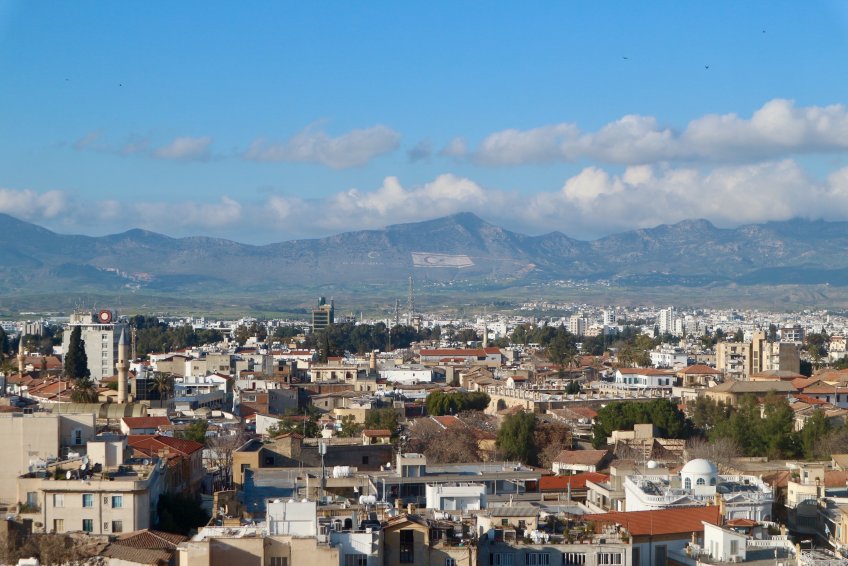
According to estimates, 81,000 Turkish Cypriots have registered to vote in the elections. The Organisation of Islamic Cooperation is the only international organisation that recognises the Turkish Republic of Northern Cyprus and has granted it observer status. Therefore, for voters the European elections are an opportunity to express their opinion, as their voices are hardly heard internationally. The upcoming elections on the island are also exciting because they are the only ones where Turkish and Greek Cypriots can vote for representatives belonging to the other ethnic group.
Some 50 polling stations to the south from the Green Line should guarantee exactly that. If all the Turkish Cypriots registered to vote were divided equally on these stations, each of them should allow 1,620 citizens to vote. To offer a comparison: Greek Cypriots can cast their vote in one of 1,050 polling stations. In the 2014 election, 266,891 of them went to vote. This means that each polling station should, on average, accommodate 254 voters.
Whether voting is logistically possible for Turkish Cypriots can be decisive: of the current MEPs for Cyprus, the one who got the least votes in 2014 was voted for by just under 16,000 Cypriots. Hence, 81,000 voters have a great deal of decision-making power.
Forecasts: DISY will lose voters to ELAM
At the same time the Republic of Cyprus, which de facto only controls the south of the island, warns that young Greek Cypriots show little interest in the European elections. For the established parties, the electoral campaign already began long ago: a study cited by the English-language Cyprus Mail in April saw the Democratic Rally (DISY) party in the lead with 24% of the votes. DISY counts as a Christian democratic, conservative party; their MEPs sit with the EPP in the European Parliament. If the forecast of the poll came true, this would represent a loss for the current governing party: it would lose up to five percent of voters to the Greek nationalist, Eurosceptic National Popular Front (ELAM).
However, the projection remains stable for the Progressive Party of Working People (AKEL), at 21%. The formerly communist party now represents mostly social democratic views and did not question the market economy on the island during its time in government. Its MEPs sit with the left-wing GUE/NGL group in the European Parliament.
Both the Democratic Party (DIKO), polling at 8%, and the Movement for Social Democracy (EDEK), polling at 3.1%, belong to the social democratic S&D group in the European Parliament. In the 2014 elections, DISY and AKEL got two MEPs each, while DIKO and a coalition between EDEK and the Greens both got one.
Potential first: Turkish Cypriot candidates
Besides the established parties of the Republic of Cyprus and their European parliamentary groups, two Turkish Cypriot movements have presented candidates: on the one hand the communist Cyprus Socialist Party (KSP), on the other Şener Levent and five other candidates from the Jasmine Movement. On The Guardian in April, Levent stated that he wants to push the “occupation” of the northern part of the island by the Turkish military to the centre of public discussion through his candidacy. What he demands is not the foundation of a state that the Turkish and Greek Cypriots establish anew together, but the continuation of the Republic of Cyprus and the integration of the northern parts to it.
Levent is currently facing a court case because he published a cartoon where a Greek statue urinates on Erdoğan’s head. Pauline Adès-Mével, the Head of the EU and Balkan desk of Reporters Without Borders, subsequently expressed concern over the pressure that Turkey exerts on Turkish Cypriot media houses like Afrika.
This is not the first time that Levent stands in European elections. In 2014, however, his bid was unsuccessful. Another Turkish Cypriot politician, however, is considered a potential candidate for entering the Parliament in Brussels. In the north of the island, which had so far never witnessed a professional European election campaign, Niyazi Kızılyürek has advertised himself on billboards, in social networks and on newspapers. The professor at the University of Cyprus, based in the southern part of Nicosia, is a candidate for AKEL and belongs to those who, unlike Levent, speak in favour of a reunification of the island to a bizonal, bi-community federation in the stead of the current Republic of Cyprus.
For this position, he receives harsh criticism from the Turkish, government-friendly Daily Sabah: The newspaper says that AKEL is feigning support for Turkish Cypriots with the help of Kızılyürek, without really working for a solution of the Cypriot conflict. Kızılyürek doesn’t see himself as a representative of the Turkish Cypriot community but rather as a supporter of certain ideas, like a Cypriot federation.
Formulating an election programme that doesn’t address the Cyprus dispute is unthinkable for politicians like Kızılyürek. Nonetheless, the positive projections that he has had are remarkable. No Turkish Cypriot has been elected to public office in the Republic of Cyprus since 1963. If Kızılyürek is successful, his entry into the European Parliament will be a first, and thereby an extraordinary moment in the history of the island.
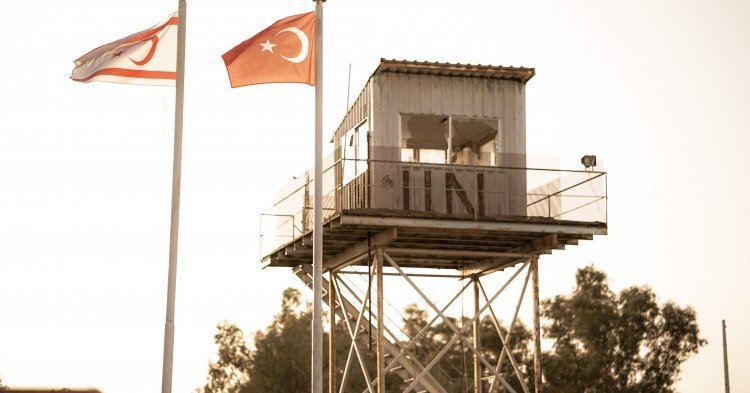
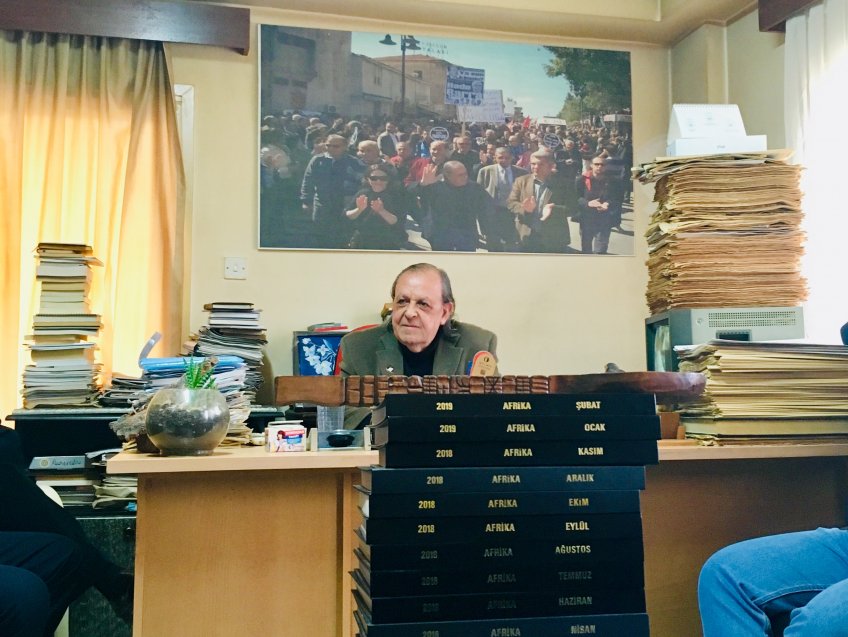
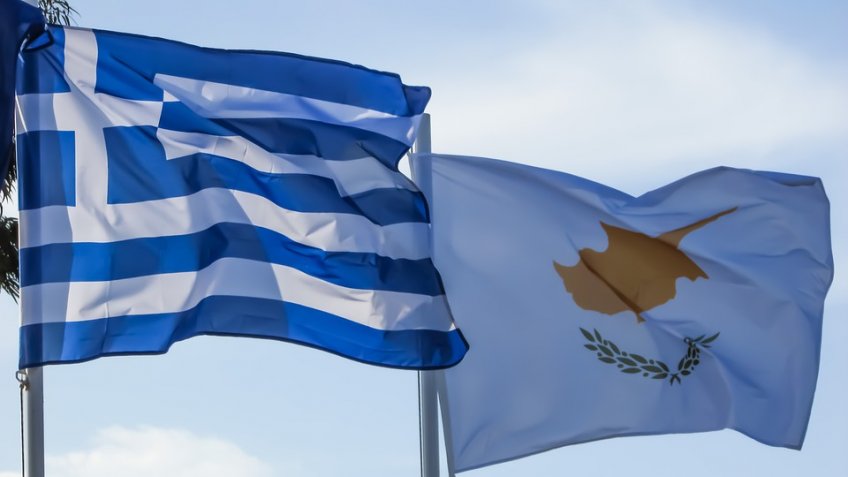
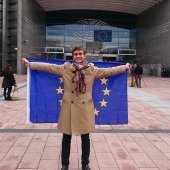

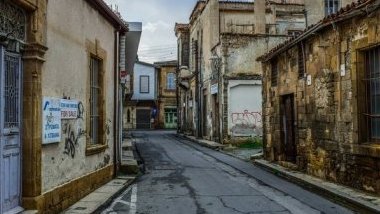
Follow the comments: |
|
